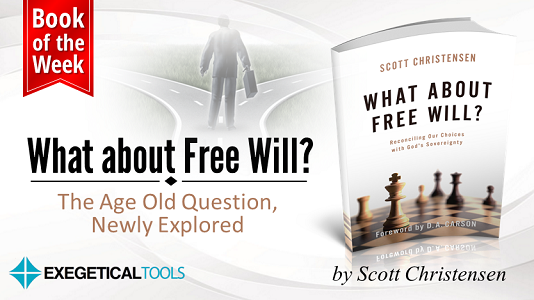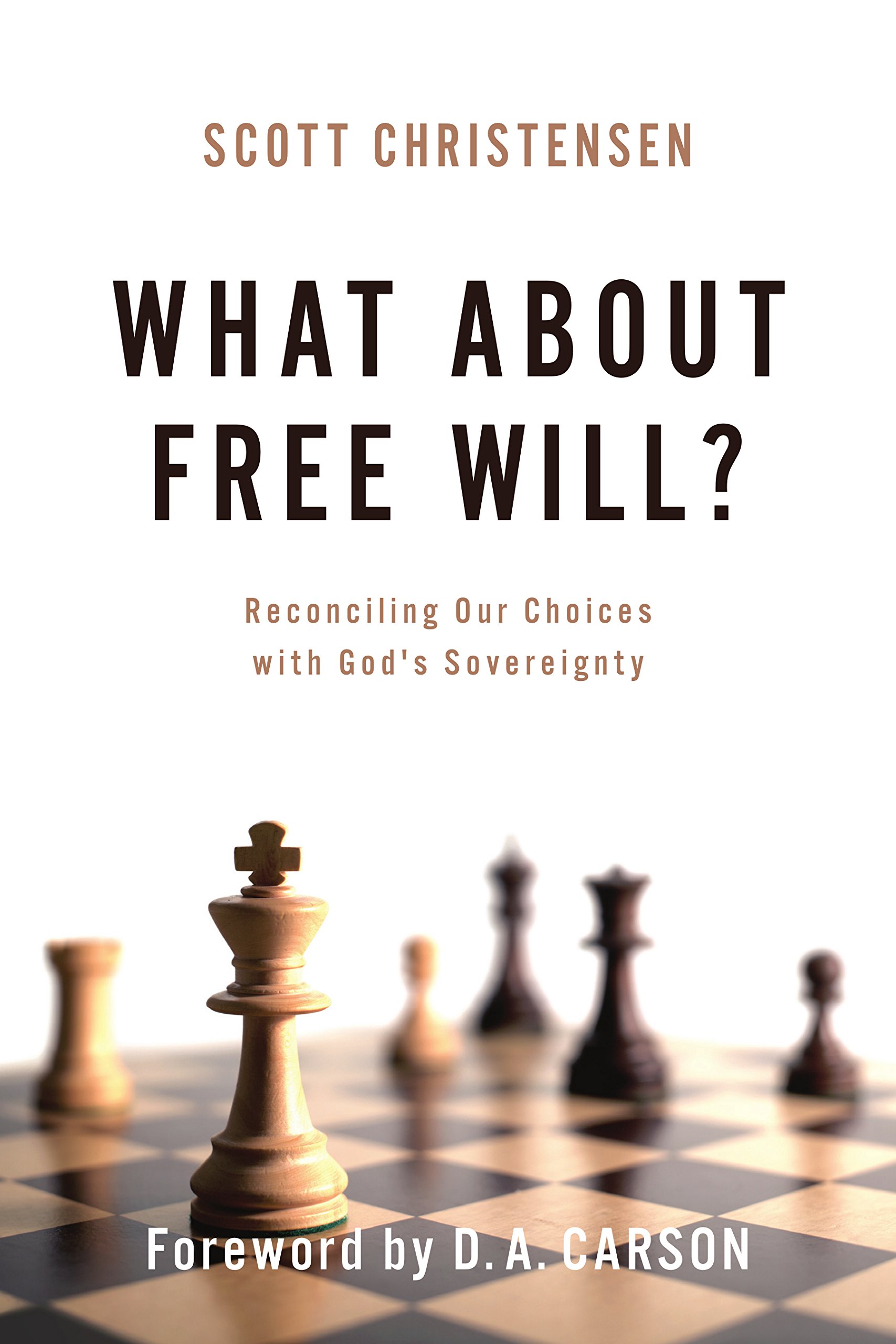
When I first read the introduction to What about Free Will?, I couldn’t help but think of myself 10 years ago. I had recently discovered the “doctrines of grace” and was exploring them and studying Scripture to sort things out. I could recall my own experiences as I read through the backstory to this book given by the author, Scott Christensen. We’ve all had the chance to wrestle with the issue of God’s sovereignty, how it relates to salvation, and where free will comes into play.
If you’re still sorting through the issue (I think that means all of us), you might enjoy this work. Christensen’s goal is not to deal with the philosophical issues that attend this discussion (e.g., the precise definition of “free will” as it relates to, say, quantum mechanics). Rather, he wants to take a fresh glance at Scripture and compare the arguments made on both sides to what the Bible says. In some ways, I’m nostalgic–reading through this work is like reading through the Reformers as they simply dove into Scripture.

Contents
Here’s how the book is laid out. Chapters 1-2 examines libertarian free will. Since the dual tasks of this book are to critique libertarian free will and to argue for compatibilism, these two chapters carry a lot of weight. Chapter 3 surveys God’s sovereignty in Scripture, which sets up his explanation of compatibilism in ch. 4. Chapters 5 and 6 then explain how we are able to obey God’s commands and how he can ordain evil (no small task!). The rest of the book explains how compatibilism works out in areas such as the human will, freedom, and responsibility.
There are a thousand books out there on sovereignty, election, predestination, and the 5-points. Why might you want this one on free will? Here are a few reasons…
Praise
Christensen writes in a very relaxed manner. While I do enjoy a good papal rant from Calvin’s writings, it’s also nice to read a smooth script that talks you through an issue. He also throws in some fun illustrations to pull you back into the book–for example, his nice use of Twelve Angry Men at the beginning of ch. 5. Again, when discussion the difference between coercion and reluctant action under duress, he relates a fascinating account of a bank robbery by a man who was forced to do so or be blown up by a bomb placed on him.
I recall reading Loraine Boettner’s classic The Reformed Doctrine of Predestination long ago. It read in a similar manner insofar as he dealt with Scripture throughout and omitted discussion of much philosophical jargon. However, I also found it quite dry, with illustrations generally relegated to hypotheticals that did not have much relevance. Christensen, though, enjoys a good cultural reference here and there (unfortunately, there were no Seinfeld references or I would recommend this book even more highly…).
One last point is that his interaction with sources spans the spectrum from academic (e.g., D. A. Carson’s Divine Sovereignty and Human Responsibility) to pastoral (e.g., Sam Storms, Randy Alcorn), to those who write for both audiences well (e.g., John Frame’s Doctrine of God).
What about ‘What about Free Will?’
So if you want to enjoy a nice walk through the issues related to free will and sovereignty on a Sunday afternoon while enjoying a cup of coffee in your armchair, grab this book. New perspectives, new stories, and new takes on old arguments await you, and not many issues stand to perplex you as much as this one (which is fun for those of us who enjoy that sort of thing!).
Find it here on Amazon.


